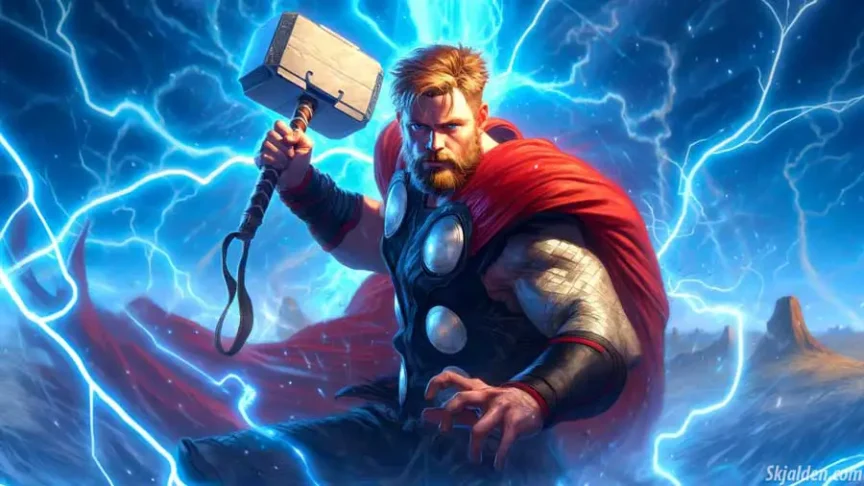Have you ever wondered why Thursday is called Thursday? It’s an interesting story that takes us back to Norse mythology, where Thor, the god of thunder, plays a leading role. This day of the week, originally known as “Thor’s Day,” reflects the lasting influence of these ancient stories on our daily lives.
This trip through time isn’t just about one story or place. Thor’s Day pops up in different countries, each with its own take on the day named after Thor.
It’s fascinating how these legends from centuries ago are still with us, turning an ordinary day into a reminder of epic tales and gods. Thor is not just any character; he is a symbol of strength and protection, and by naming a day after him, it’s like we’re carrying a piece of that power into our week.
So, every Thursday, without even realizing it, we’re tipping our hats to a tradition that’s been around for thousands of years, keeping the legacy of Thor alive. It’s a neat connection to the past that shows how history and these narratives can make even the routine parts of our lives a bit more special.
Thor’s Day Across the Nordic Countries
Now, let’s see how this tradition extends beyond just one place, reaching into the homes and histories of people across the Nordic countries. Each has its own way of celebrating Thor’s Day, enriching the story even more.
Here’s how Thursday, or Thor’s Day, is called in the homelands of the Nordic people:
- Denmark and Norway: “Torsdag” here it directly means Thor’s Day. Which is a clear tribute to the god of thunder, showing how deeply Thor’s legacy is woven into the fabric of these societies.
- Sweden: Same as above, emphasizing the shared Viking heritage that celebrates Thor’s might and protection.
- Iceland: A bit of a twist with “Fimmtudagur,” translating to “fifth day.” Though it steers from Thor’s name, it maintains the traditional way of marking time, reflecting Iceland’s unique linguistic path.
- Finland: It’s called “Torstai.” Even though Finnish isn’t a Norse language, the name shows Thor’s wide-reaching influence. Torstai” comes from Old Swedish and it means Thor’s Day.
- Åland Islands (part of Finland): Here, just like in mainland Finland, Thursday is called Torstai.
- Faroe Islands (part of Denmark): Here, it’s “Hósdagur” for Thursday, meaning “High Day.”
- Greenland (part of Denmark): In Greenland, Thursday is known as “Sisamanngorneq.” This name doesn’t directly reference Thor, aligning more with the Greenlandic way of naming days.
Every Thursday, we get a little reminder of Thor and the stories that have been passed down from our ancestors for thousands of years. And it’s pretty cool how a simple day of the week like Thursday can connect us back to the myths of the Norse gods and show us the marks they’ve left on our calendars and cultures. Whether it’s “Torsdag” in Scandinavia or “Fimmtudagur” in Iceland, each name carries a piece of history into today. So next time Thursday rolls around, maybe give a little nod to Thor and the ancient tales that still influence our lives.
